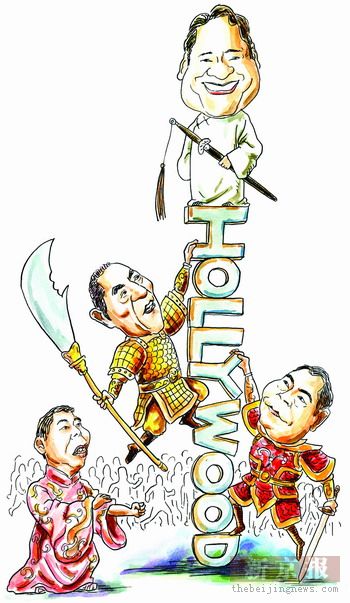| Home / Entertainment / News | Tools: Save | Print | E-mail | Most Read |
| Curse of the Golden Box Office? |
| Adjust font size: |
The final days of the year are a period of anticipation and expectation, particularly where blockbuster films are concerned. The long-awaited blockbuster Curse of the Golden Flower, directed by Zhang Yimou, one of China's most acclaimed film directors, premieres today not only across the country but also internationally.
The fact that it is again a story about an ancient emperor gets on the nerves of critics, most of whom question the imagination and creativity of such big names as Zhang Yimou, Chen Kaige and Feng Xiaogang. They were accused of following the footsteps of Ang Lee, whose Crouching Tiger, Hidden Dragon won an Oscar for best foreign film in 2001. The success of Crouching Tiger, Hidden Dragon seems to have sent a message that martial arts movies set in ancient dynasties can easily appeal to the tastes of Western audiences. Films like The Hero, House of Flying Daggers, The Promise and The Banquet, produced by China's three best-known directors in the past couple of years, have undoubtedly reflected a belief that films of this kind are, if not the only choice, the main option to get their films onto the international market with its handsome box office profits. Against the background of making these expensive films using overseas investment, the primary concern has become whether or not these films can clean up at the box office so that they can secure further investment and, of course, turn a profit. All of these films are a success in terms of box office income. It seems the blockbuster formula has a chain reaction. The glory of Crouching Tiger, Hidden Dragon propelled Zhang Yimou to follow suit with The Hero. Profit from the latter gave him the confidence to shoot House of Flying Daggers. Then directors Cheng Kaige and Feng Xiaogang made their own similar blockbusters. Martial arts stories set in ancient dynasties may continue to dominate blockbusters financed by overseas investment in the near future if Curse of the Golden Flower reaps record box-office earnings, as many have predicted. Spending money indeed helps lift the cinematography of these films. And no matter how scornful critics are of them, no one has ever denied their beauty and appeal. These films have made inroads into the international market, an achievement no other Chinese film had previously made. Critics claim these films lack strong storylines. They have also been accused of being shallow and criticized for not conveying strong messages or values. This may be the price they have to pay for groping their way onto the international film market. (China Daily December 14, 2006)
|
| Tools: Save | Print | E-mail | Most Read |
 |
| Related Stories |
